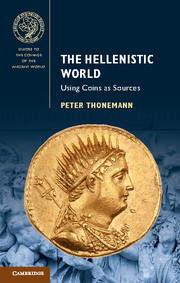Book contents
- Frontmatter
- Contents
- List of maps
- List of figures
- Preface
- List of abbreviations
- Maps
- Part I Globalization
- Part II Identity
- 3 Civic identities
- 4 Collective identities
- 5 Hellenizing identities
- Part III Political economy
- Part IV Ideology
- Guide to further reading
- Appendices (by Andrew Meadows)
- Bibliography
- Index
5 - Hellenizing identities
from Part II - Identity
Published online by Cambridge University Press: 05 December 2015
- Frontmatter
- Contents
- List of maps
- List of figures
- Preface
- List of abbreviations
- Maps
- Part I Globalization
- Part II Identity
- 3 Civic identities
- 4 Collective identities
- 5 Hellenizing identities
- Part III Political economy
- Part IV Ideology
- Guide to further reading
- Appendices (by Andrew Meadows)
- Bibliography
- Index
Summary
Introduction
What is Hellenization? This question lies at the heart of most recent work on the societies along the fringes of the Hellenistic world, both to the east (Parthia, Armenia, the Indo-Greeks) and west (Carthage, Italy, Spain). Without doubt, certain aspects of Greek culture – the use of coined money, the Greek language, naturalistic sculpture, urbanism – were very widely adopted by the non-Greek neighbours of the major Graeco-Macedonian royal states. But in what sense, if any, is it helpful to conceive of these societies as ‘Hellenized’?
The adoption and adaptation of Greek culture was certainly not a matter of a triumphant Greece or Macedon imposing its values on a vanquished barbarian periphery. On the contrary, Hellenization is often most visible where Graeco-Macedonian colonial power was at its weakest. So in Parthia, as we will see later in this chapter, Greek iconography on coinage and the royal title ‘Philhellene’ emerged at precisely the moment when the Parthians defeated and supplanted the Graeco-Macedonian Seleucid dynasty in Mesopotamia. Hellenizing cultural traits were not adopted by the Parthians to proclaim a self-consciously ‘Greek’ or ‘hybrid’ identity: rather, Greek culture became a means of asserting Parthian power and distinctiveness. Foreign cultural motifs were used by the Parthians ‘within a nevertheless culturally distinct package of self-definition’ (Curti, Dench, and Patterson 1996: 181–5).
The problems of ‘Romanization’ as a conceptual framework for describing cultural change in the Roman world have been widely discussed (Woolf 1998; Keay and Terrenato 2001; Mattingly 2011: 203–45). With a few notable exceptions (Rajak 1990; Hornblower 1996 [2003]; Wallace-Hadrill 2008: 14–28), Hellenization has not enjoyed the same kind of sustained theoretical reflection. Some scholars have wanted to ditch the (modern) terms ‘Hellenization’ and ‘Romanization’ altogether, in favour of more apparently neutral concepts like ‘creolization’, ‘hybridization’ or ‘discrepant experience’. This is unnecessary: what was distinctive about the Hellenistic period was precisely the fact that it was Hellenic culture that was appropriated by so wide a range of different peoples (Mullen 2013: 3–19). This chapter will show how coinage can help us understand the bewildering variety of Hellenizing identities adopted in different parts of the Hellenistic world.
Hellenistic Iran
Persis, the centre of the old Persian empire of the Achaemenids in modern south-western Iran, is one of the most obscure corners of the Hellenistic world (Callieri 2007).
Information
- Type
- Chapter
- Information
- The Hellenistic WorldUsing Coins as Sources, pp. 87 - 108Publisher: Cambridge University PressPrint publication year: 2016
